Funding
The Merkel Lab is currently funded by the following grants:
|
European Research Council |
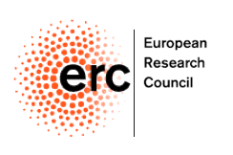 |
| Federal Ministry for Economic Affairs and Climate Action AIRMAIL May 2023 until April 2026 Accelerated development of RNA-based therapies and lipid formulations through artificial intelligence The goal of this "future project" is to develop a self-learning algorithm supported by artificial intelligence that can predict formulation parameters, individual formulations and new lipid designs in the future. PIs: Hagen Richter, Adriano Indolese, Olivia Merkel, Christoph Arenz |
 |
|
Munich Multiscale Biofabrication Network |
 |
| Volkswagen Foundation AZ-9A872 Oct 2021 until Sept 2024 Development of an ex vivo lung tissue model for the study of antiviral siRNA The goal of this study is to develop an ex vivo model based on human lung tissue to study the efficacy of antiviral siRNA PIs: Merkel, Michler, Burgstaller |
 |
|
Elite Network Bavaria |
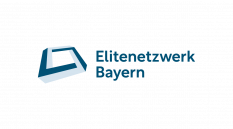 |
|
BMBF Future Cluster |
|
|
DFG |
 |
Previous Funding
|
European Research Council The goal of this study is to establish technical and commercial proof-of-concept for our existing and protected protocols to be transformed into a platform technology with the long-term goal of licensing agreements with large pharmaceutical companies which are equipped for continuous manufacturing of large scales of dry powder RNA formulations. |
 |
| LMUexcellent CoG Pilot Funding Jan 2022-Dec 2022 Development of better RNA nanocarriers for inhalation delivery The goal of this pilot study is to develop better polymer-based nanocarriers for RNA delivery to the lung. PI: Merkel |
 |
| SPRIN-D BacDefense Nov 2021 until Oct 2022 BacDefense BacDefense is harnessing the diversity of bacterial defenses as a novel source of antiviral agents. PI: Beisel, co-PIs: Fackler, Lehr, Merkel, Munschauer |
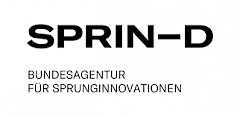 |
| European Research Council ERC-2014-StG – 637830 October 2015 until December 2021 Biocompatible nanoparticles for T cell targeted siRNA delivery as novel asthma therapy The goal of this study is to develop an inhalable powder therapy of nanoparticles that deliver siRNA against the Th2 transcription factor GATA-3 specifically into activated T cells ex vivo and in vivo to inhibit the downstream inflammatory cascades. PI: Olivia Merkel |
 |
|
Center for NanoScience (CeNS) |
 |
| Else-Kröner-Foundation 2014_A299 July 2016 until April 2020 Novel Carrier Systems for Delivery of Biologics across the Blood Brain Barrier The goal of this study is to develop novel carrier systems that encapsulate nucleic acids, proteins and both for therapeutic delivery across the BBB for the treatment of Alzheimer’s disease. PI: Fricker, co-PIs: Merkel, Müller |
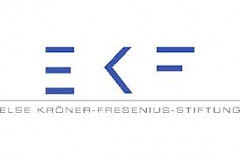 |
| Fondazione Ricerca Fibrosi Cistica FFC#23/2017 September 2017 until August 2019 Enabling pulmonary delivery of siRNA in cystic fibrosis lung inflammation: therapeutic potential of hybrid lipid/polymer nanoparticles The aim of this study is to develop lipid/polymer hybrid nanoparticles for pulmonary delivery of siRNA against NFkB to address lung inflammation in cystic fibrosis. PIs: Ungaro, Merkel |
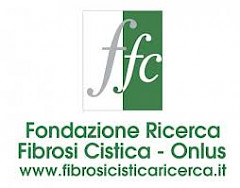 |
| Deutsche Gesellschaft für Muskelkranke Me7/1 May 2017 until April 2018 Genome editing for DMPK-CTG-repeat expansion via receptor mediated targeted delivery of CRISPR-Cas9 vectors to myoblasts The aim of this study is to develop CRISPR-Cas9 nanoparticles targeted toward myoblasts for replacement genome editing of repeat units as potential treatment for muscular dystrophy. PI: Merkel |
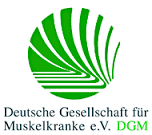 |
|
Nanosystems Initiative Munich January 2017 until October 2017 |
 |
|
Nanosystems Initiative Munich January 2017 until October 2017 |
 |
| AbbVie Deutschland GmbH Nose-to-Brain Delivery The goal of our joint project is the development of nanoformulations for efficient drug delivery to the brain via intranasal administration. PI: Olivia Merkel |
 |
| Bavarian Research Foundation, Daiichi-Sankyo Europe AZ-1449-20C Nov 2020 until Dec 2021 mRNA Delivery to Dentritic Cells for specific, efficient immunization The goal of this study is to develop a well tolerated RNA-based vaccine against SARS-CoV-2. Modified and stable mRNA coding for the receptor binding domain of the virus will be encapsulated in a nanocarrier system for optimized activation of lymphocytes and an active immunization. PIs: Urbanetz, Merkel |
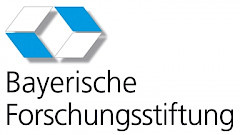 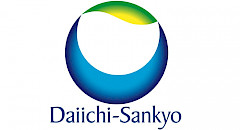 |

